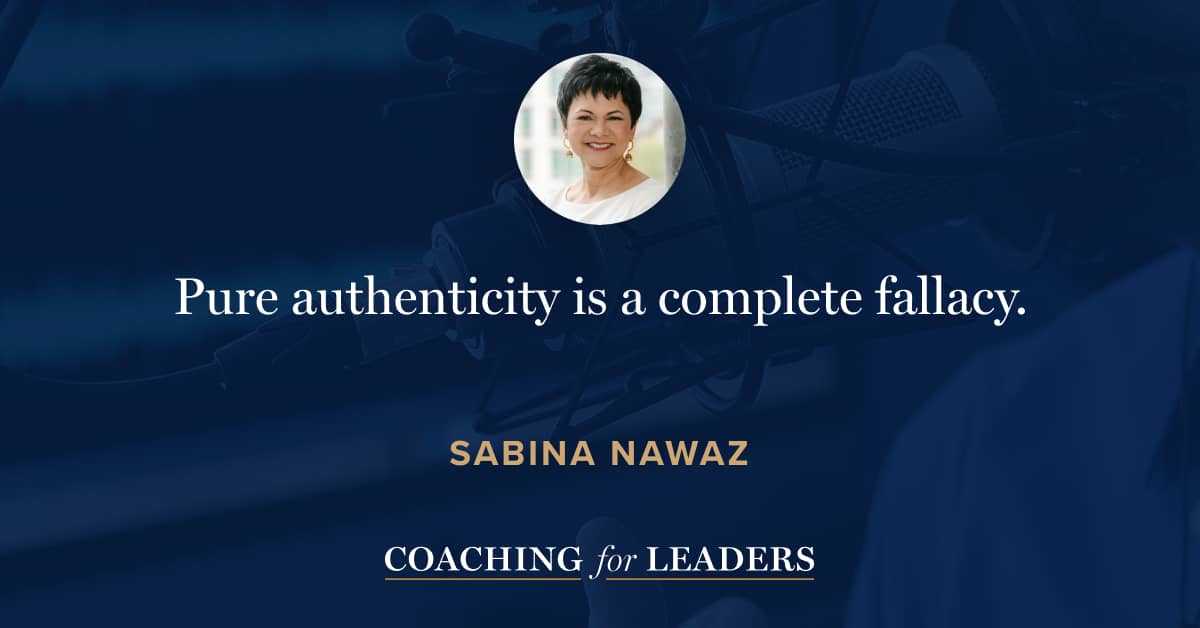Sabina Nawaz: You’re the Boss
Sabina Nawaz is an executive coach who advises C-level executives and teams at Fortune 500 corporations, government agencies, nonprofits, and academic institutions. During her 14-year tenure at Microsoft, she went from managing software development teams to leading the company’s executive development and succession planning efforts for over 11,000 managers and nearly a thousand executives, advising Bill Gates and Steve Ballmer directly. She’s the author of You're the Boss: Become the Manager You Want to Be (and Others Need)*.
Every leader I know intends to be authentic. Unfortunately, we sometimes use authenticity as an excuse not to do the critical work of calibrating our actions. In this conversation, Sabina and I discuss how to avoid that trap so we can show up more genuinely for others.
Key Points
- “Yeah, but…” signals justification and holds us back from what we most need to learn.
- Your success comes despite unhelpful traits, not because of them.
- Pure authenticity is a complete fallacy. Authenticity is not singular.
- We sometimes use authenticity as an excuse not to do the important work of calibrating our actions.
- Don’t let the smokescreen of past “authenticity” get in the way of growth.
- Authenticity is not static. Reading your old past social media posts will remind you of this.
- When shifting, start with small experiments to nudge you in a new direction.
Language that may be warning signs of the authenticity trap:
- “That’s just how I am.”
- “I’m not the kind of person who…”
- “I’m not being true to myself if…”
- “That’s the way I’ve always done things, and it’s worked for me.”
Resources Mentioned
- You're the Boss: Become the Manager You Want to Be (and Others Need)* by Sabina Nawaz
Interview Notes
Download my interview notes in PDF format (free membership required).
Related Episodes
- How to Change Your Behavior, with BJ Fogg (episode 507)
- How to Start a Big Leadership Role, with Carol Kauffman (episode 617)
- The Habits That Hold Leaders Back, with Marshall Goldsmith (episode 696)
Discover More
Activate your free membership for full access to the entire library of interviews since 2011, searchable by topic. To accelerate your learning, uncover more inside Coaching for Leaders Plus.





